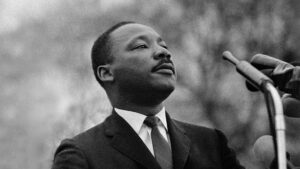
By Jill D. Schmid, Ph.D.
Obama arrived this morning (11/8/17) at the Daly Center in Chicago for jury duty in Cook County, but he didn’t have to wait long to find out he had been dismissed. Guess the attorneys won’t have to decide if they would use one of their strikes on him. That, however, doesn’t make the question any less intriguing: Would you strike the former President? If so, why?
Seems like as good a time as any for a quick recap on five dos and don’ts of jury selection.
1. DO have a plan. This plan should be rooted in your case theory and framework. It should be driven by a clear understanding of what kind of story you’re going to tell, what values are at play, and what you will ultimately be asking the jury to decide. Do NOT go into jury selection thinking you’ll just wing it and that who you “like” and “dislike” will become obvious. You might “like” Obama, but that doesn’t tell you anything about how he’d be as a juror on your case.
2. DO develop a high-risk profile. This profile is a critical part of the plan. It is a list of adverse attitudes and experiences that would interfere with how that person listens, understands, and applies your case theory and framing to the decisions they’ll make. For each, write a question that uncovers the adverse attitude or experience. For example, when defending in an insurance bad faith case: “How many of you think insurance companies routinely deny legitimate claims?” Or for the plaintiff in many types of cases: “How many of you think that people are too quick to sue in order to get money they don’t deserve?” For Obama, “leader of the free world” is one experience that you probably don’t run across in your jury panels very often, so it’s probably not on your high risk profile; however, there are probably other areas that he just might raise a hand to, thus raising red flags for you.
3. DO NOT worry about poisoning the well. People are not persuaded by strangers who have just expressed a contrary view. Obama might be the one caveat to this “don’t.” Typically, jurors will not suddenly be against your case because you asked a few questions. Your job is to uncover those adverse attitudes and experiences during jury selection – not after you’ve lost when you then find out the panel was full of people who thought your case sounded suspect from the start.
4. DO NOT worry about building themes or rapport. Sure, you want to be likable (i.e. courteous, organized, respectful, etc.), but you can do that as you ask the tough questions to find those high-risk jurors. Also, it should go without saying, but do NOT argue with jurors about why you’re right. Sure, they might finally agree with you so you’ll stop harassing them, but they’ll quickly revert to their previous opinion once they’re on the panel.
5. DO focus on potential opinion leaders. These types of people deserve special attention. If they’re on your side, then they’ll be powerful advocates, but if you’re unsure, then the potential for them swaying a panel to your opponent’s position is a real worry. Some traits of opinion leaders are: articulate, talkative, friendly, hold leadership positions, have been on juries before (particularly as the foreperson), and not afraid to express their opinions. Sound like anyone who showed up for jury selection in Cook County?
So, back to the question: Would you strike Obama? When I helped pick a jury in Cook County, I would have loved to have him as a potential juror, but not because I would have wanted him on the panel. I would have enjoyed simply meeting and talking with him. But, that’s the point of this – wanting to have lunch with someone doesn’t mean they’d be a great juror for your case. In Obama’s case, the fact that he would exert tremendous influence on the rest of the panel is enough to consider him high risk and, likely, enough for at least one of the parties to strike him.




